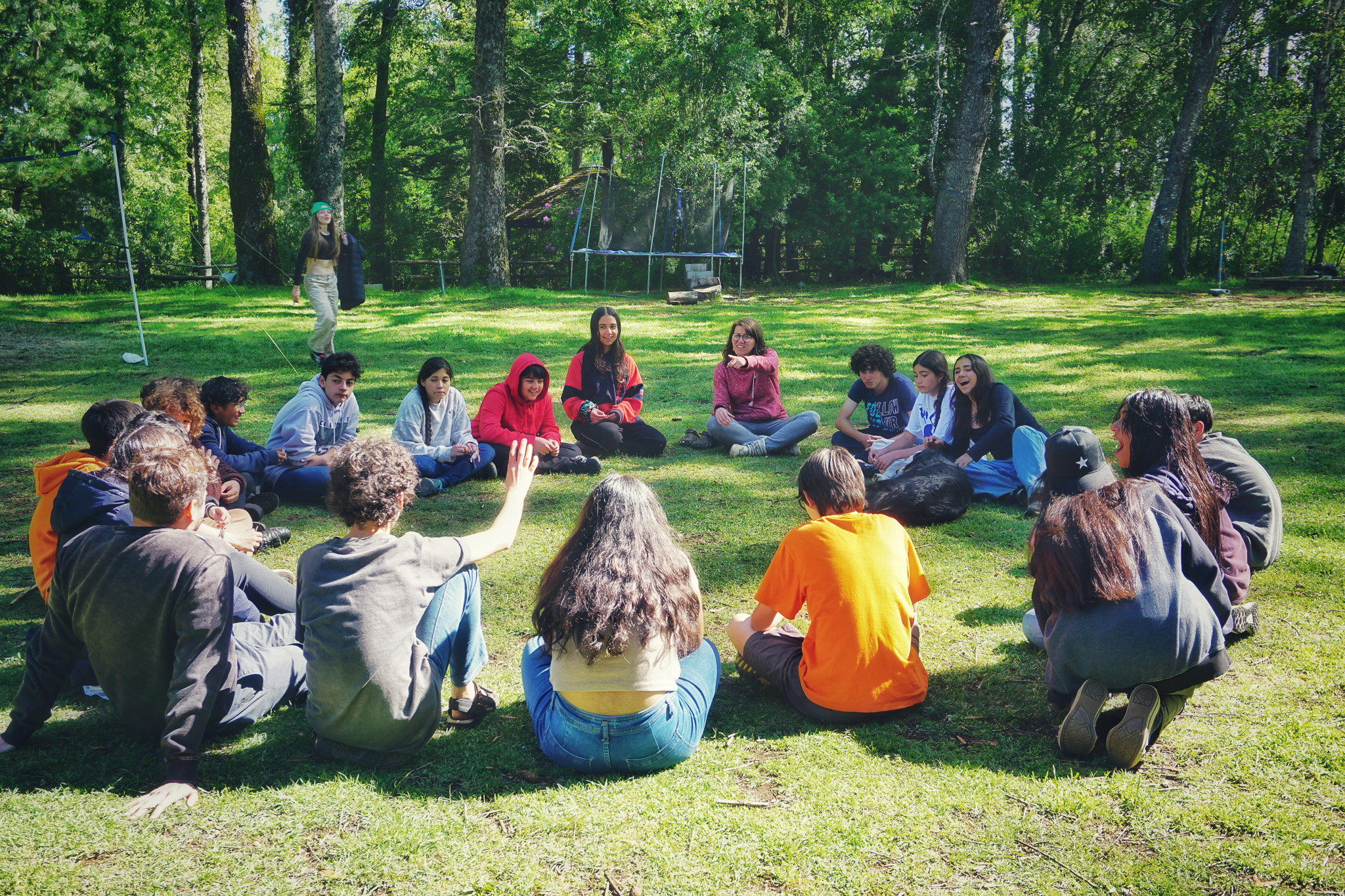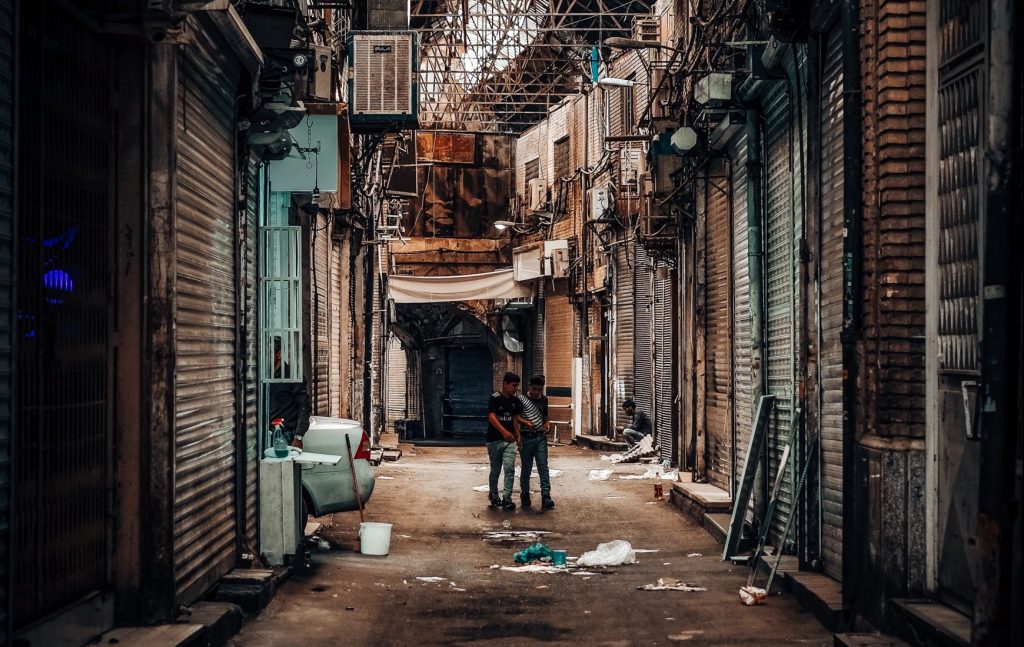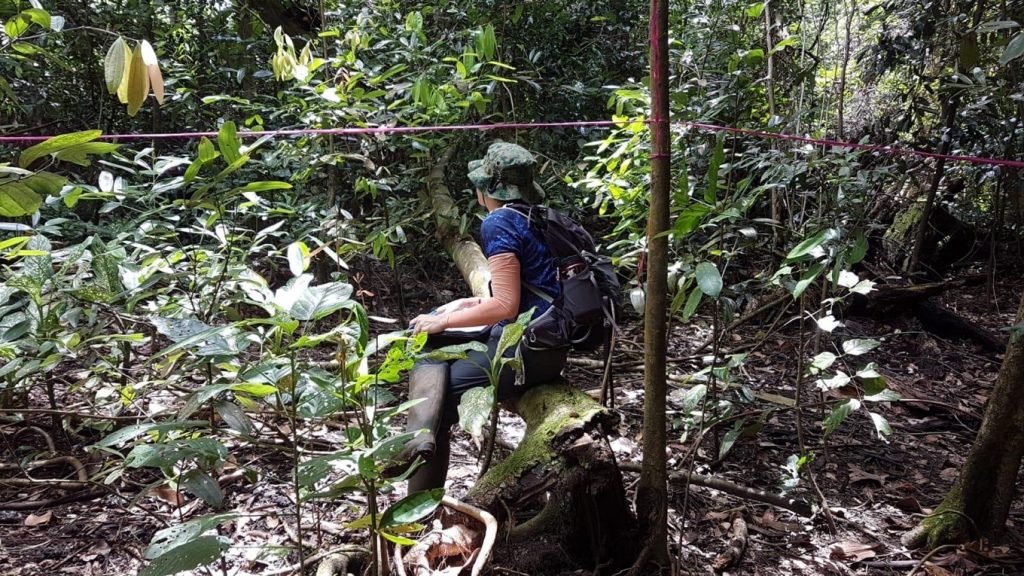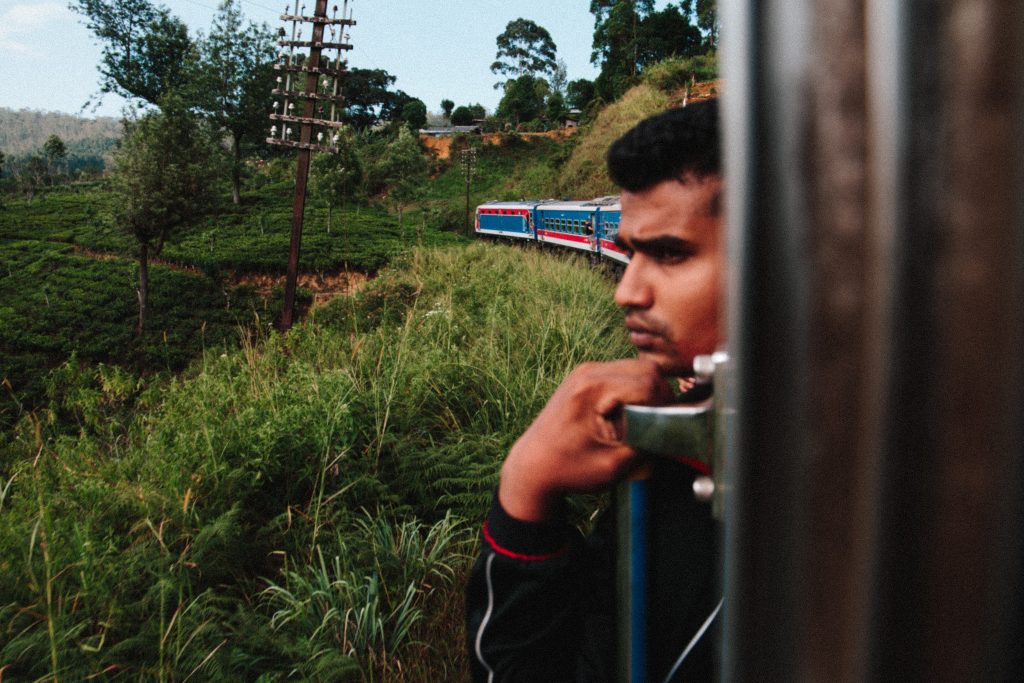
Faithful Everywhere
Living out the gospel in creation, culture, and society
What do a humble farmhouse in Chile, a two-stringed instrument in Malaysia, and a post-it note on a locker in Norway have in common?
They represent projects with which IFES staff and movements have been involved. And they illustrate a core conviction of IFES – that our ministry should impact the whole of society for the glory of Christ, that kingdom values should shape our cultures and change the world.
This month’s Conexión blog brings you stories of the restorative impact of God’s kingdom. Each project is unique, but all embody the IFES vision for Engaging the University, one of our Global Resource Ministries. They express the belief that the gospel has something vital to say across every discipline, from politics, economics, and science to ethics, education, and the arts.
Here are disciples of Jesus authentically engaging in all aspects of life, transforming creation, culture, and society with God’s good news.
RESTORING CREATION
As Cristina Jakob talked with Alejandra Venegas, a staff worker in Chile’s national IFES movement (GBUCh), she knew she’d met a kindred spirit – someone passionate about the natural world, someone invested in helping others engage with creation care.
Cristina had been praying about how God might use her agricultural background, degree in ecotourism, and enthusiasm for creation care. When Alejandra shared that she’d met many students who felt burnt out, an idea began to hatch.
On her family’s farm, in the Araucanía region of southern Chile, stood a spare building. What if they invited students to come and visit this place as a retreat? What if they could cook, eat, and share together? What if they could spend time in contemplative Bible reading? What if they could not just read the verse about the “birds of the air and the lilies of the field”, but actually go out and observe them? What if their own restoration could take place in the context of restoring creation?
The vision for Casa Retoño was born.

In the wake of the pandemic, Cristina and Alejandra took tentative steps in late 2020, hosting one or two students at a time. As they gained experience in offering this hospitality, space, and rest – and listened to the ideas and needs of those attending – they were able to develop a framework and officially launch as Fundación Retoño the following year (and have since become a Friend of A Rocha).
The dual significance of the foundation’s name, retoño (meaning offshoot/offspring in Spanish), is depicted in their logo – a drawing of new growth sprouting out of a dead stump. It represents restoration of our planet and spirit, as the team’s message of hope says: “To those who need to heal in body, mind, or soul, it’s never too late or too withered to sprout again.”
In addition to retreats, Fundación Retoño also offers environmental education – with workshops for various groups and ages – and conservation projects, including the tending of an orchard and a small-scale nursery of native trees for reforestation. Andrea, a forest management student, has recently joined the Casa Retoño team to help with ecosystem restoration.
The retreats have proved very popular, with students coming not only from the nearest city, Tenuco, but also from the capital Santiago, a seven-hour bus ride away. The program is flexible and tailormade – accommodating individuals and groups, usually for two or three days. Last year, one student group spent five days on site, helping to build a greenhouse in the mornings and engaging in Lectio Divina in the afternoons.
One GBUCh student reflected: “The chirping of a bird, the colour of the trees, the rugged mountains and volcanoes in the distance, the afternoon sun and warm bread – all are instruments used by God to speak to you. Going to Retoño is like going to God and saying: Here I am, what do I need to hear?”.
Another student put it this way: “I went to rest but found much more than that. I rested by picking up a shovel and connecting with the land. I rested by reading a good book, being quiet, and eating well. Cristina and Alejandra gave me not only a beautiful and peaceful place to rest, but they welcomed me with love and the smell of home.”
In this coupling of creation care with soul care, Cristina has felt the call of God in her life. She grew up in a church culture that implied true service to God only equates to serving God in church activities. So, she has felt a deep sense of spiritual and personal fulfilment in realising she can truly serve her Lord in the setting where she is, with the gifts and passions that he has given her. With an enthusiastic smile, she says, “I’ve come to see that being faithful to God also means being faithful to who he made you to be.”
RESTORING CULTURE
Another person whose ministry echoes that sentiment is Rining Peter Paris. For over 20 years, he’s served as staff with FES Malaysia in the Sarawak region on the island of Borneo, ministering mostly to the indigenous Bahasa-speaking Malaysian students. In the last five years, he has discovered a new dimension to his ministry, a calling which is helping his own Lun Bawang tribe recover and redeem a piece of their heritage.
One day, a tribal elder was talking to Peter, a keen player of the regionwide lute (sape). The elder reminded him of an instrument Peter’s grandparents used to make and play: the tapi – a two-stringed lute – long, narrow, and hollow inside, carved with intricate designs. It was dying out, but a century before it had been a popular part of the culture – so much so that Australian missionaries who brought the gospel to his tribe in the 1930s chose to use the word tapi for ‘lute’ when they translated the Bible.
When Peter reread those scriptures, he was moved by the story of David bringing the Ark of the Covenant back into Jerusalem – that they were “celebrating with all their might before the Lord, with castanets, harps, lyres (tapis!)” (2 Samuel 6:5). What if he could bring the tapi back into his own community like David brought back the Ark? What if he could restore its place in the tribe so that it could bring glory to God? What if he could help his people recover this facet of their cultural identity and see its connection to the land and God?
Peter’s vision for restoring the tapi was born.

Today, Peter not only makes and plays the instrument (see here), he also teaches others and raises awareness in the region. Last year, the Sarawak Ministry of Tourism, Creative Industries, and Performing Arts funded Peter to take the tapi on a tour of local high schools. In these two-hour sessions, he played the instrument, let the children hold it, and introduced them to the backstory. Peter is delighted: “It was so touching to see many children who’ve never seen one before holding it and feeling a sense of connection with their ancestors and the land – and a privilege to then be able to tell them the story of David and the Ark at the end”.
“I believe that the Maker of the Universe has blessed us with the creativity to make unique musical instruments for worship. But before the Lun Bawang knew Christ, we didn’t see the tapi’s true relation to God. That changed when we turned to Jesus. The tapi was restored to its rightful purpose – for adoring, praising, and glorifying God. This is why reviving this instrument is also about its redemption.”
Reviving the tapi has also opened doors for Peter to annually perform at a large music festival and play in a band with FES Malaysia graduates. The tunes and songs they share express their concern for creation care. In Borneo, where deforestation is rife, many are worried but afraid of speaking out. Peter’s ‘songs of the land’ are a way to challenge environmental destruction. “We need to be a voice for the forest,” he explains.
In this way, Peter’s love of music and culture, his concern for God’s creation, and his desire to serve his people come together in glorious harmony. It’s a good news tune that rings out from the rhythm of his faith.
RESTORING SOCIETY
Through IFES movements, the values of God’s kingdom are also touching society.
In Kenya, at the relatively small Medical Training College in Msambweni, the Christian Union has various ministries. In addition to their weekly meetings for fellowship and their evangelistic visits to student residences, they also have a vision for engaging in social transformation projects. Recently, they took part in activities advocating for security in Msambweni.
In Norway, the national movement (NKSS) runs Godhetsuka each November – a week focused on “doing good purely for the sake of goodness”. Friends, teachers, cleaning staff, principals, and people on the street are all pleasantly surprised by various random acts of kindness. The vision is simple: “Little things done in love change schools and campuses”. This year, more than 64 educational institutions signed up to spread goodness with activities like free drinks and cakes served in corridors, and post-it notes with positive messages left on lockers.
In Chile, during the 2018 student protests about harassment and sexual abuse in the university sector, members of GBUCh engaged with the protestors and the issues. Daisy Seguel, a student at the University of Chile at the time, explains their vision for serving the young women: “Protestors had to stay on campus overnight to avoid eviction. So, we brought them food and listened to their problems. We did everything we could to be there for them. In the face of such pain and resentment, it’s not easy to present the gospel. But this support and attentive listening were a priority for our movement.”
GBUCh also engaged with the issues, organizing discussions at the national office and considering a Christian response to violence and discrimination against women. Since then, the movement has created its own protocol against abuse and harassment and still discusses the subject despite it no longer being front-page news. See more here.
RESTORING YOUR CONTEXT
Here are stories of how the gospel in us is bringing restoration to the world – even when the challenges are great.
The Apostle Peter wrote to Christian believers scattered across an increasingly hostile empire. Whether they were a citizen, slave, wife, or husband, he was sure that they could have an impact in their immediate context:
“You are a chosen people, a royal priesthood, a holy nation, God’s special possession, that you may declare the praises of him who called you out of darkness into his wonderful light… Live such good lives among the pagans that, though they accuse you of doing wrong, they may see your good deeds and glorify God.” (1 Peter 2:9,12)
So, where has God put you? What vision is he giving you? How can he use your passions, knowledge, and skills in the place where you are? What impact will you have in your setting and society?
As a student, faculty member, or campus staff, would you like to explore how to think biblically and critically about your context and calling in the university? Do you want to be equipped to seize the opportunities and tackle the challenges you meet as you follow Christ on campus, engaging the whole university? Then sign up for the Engaging the University E-Learning Course.
Find further inspiration for engaging your campus with examples from movements in East Asia in this free booklet.
Related Posts

Building Bridges
CECE Ecuador Encourages Intelligent Engagement
Because he is my brother
Central Asian students confront discrimination against international students
On a journey of wonder
3 Ways to Care for Creation
Deep Engagement for Social Change
How students are addressing suicide in Sri Lanka





